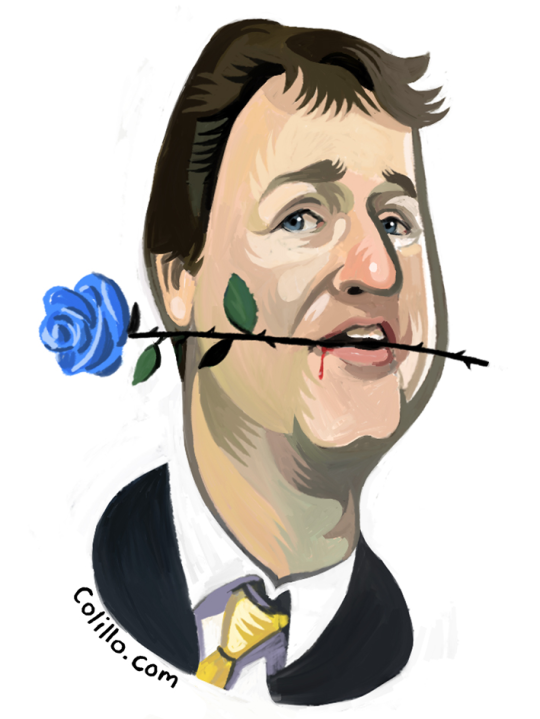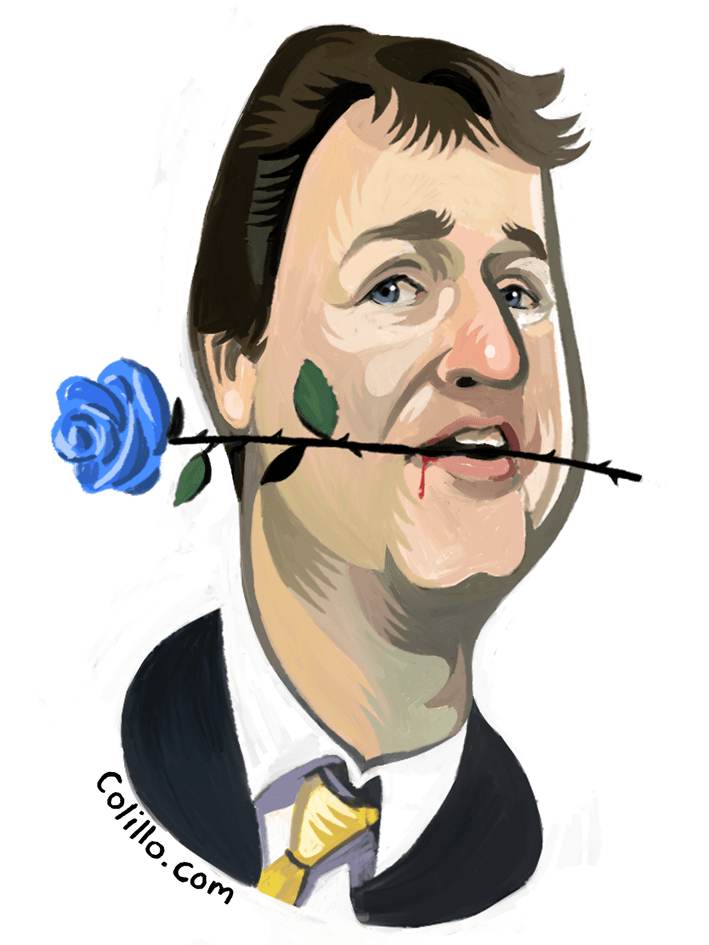 Nick Clegg has a blue rose in his mouth in tomorrow’s Spectator, serenading readers – and showing his hidden Tory side. I have to say, he puts his heart into it.
Nick Clegg has a blue rose in his mouth in tomorrow’s Spectator, serenading readers – and showing his hidden Tory side. I have to say, he puts his heart into it.
Not only does the Lib Dem leader say he’ll end the structural deficit with 100 percent spending cuts (not the 20 percent tax rises, 80 percent cuts combo that the Tories advocate), but he even heaps praise in Lady Thatcher. More, he describes her as something of an inspiration: just as she took on vested interests in the 1980s, so he will take on the banks now.
Personally, I can’t quite see the equivalence – and Clegg as the Heir to Thatcher is an image that I just can’t conjure in my mind. But you can’t blame him for trying. Extracts from interview below:
‘I like to think that Conservative voters who feel there is something flakey about the Cameron-Osborne leadership might feel there is a consistency and conviction in my leadership. I do understand that they feel it’s their turn, that they feel a sense of entitlement. But what has surprised me is this ideological vacuum at the heart of the Conservatives.’
Each year, the government is borrowing £180 billion. Mr Clegg thinks that, once the economy recovers, the gap will be ‘to the tune of £80 billion or so’. So how do you fill this gap? Labour would do so with one third tax rises and two thirds cuts. The Tories would have one fifth tax rises. But Mr Clegg says the Lib Dems are the most radical of the lot: they propose no tax rises at all. ‘We’re saying “purely spending cuts”, and for a number of reasons. If you want the economy to grow, you must stimulate demand. Any economist will tell you that the best way to do this is by giving tax breaks to the people who tend to spend more of their money they receive.
Age, he claims, has taught him the point of Lady Thatcher. And, indeed, he now seems to see her as something of an inspiration. ‘I’m 43 now. I was at university at the height of the Thatcher revolution and I recognise now something I did not at the time: that her victory over a vested interest, the trade unions, was immensely significant. I don’t want to be churlish: that was an immensely important visceral battle for how Britain is governed. And what has now happened to the British economy? It has gone belly-up because, once again, we have allowed a vested interest to run riot.’ He is talking, of course, about the banks. ‘They represent a vested interest. This is what I sometimes don’t understand about the Cameron-Osborne act. A real liberal believes in genuine competition, a genuine level playing field and he is unremittingly hostile to vested interests.’ As Thatcher was to Scargill, so Mr Clegg intends to be to the banks. ‘What I find so striking is that the spirit — dare I say it — of the battle against the dominance of one vested interest, the trade unions, is exactly the same spirit we need now.’
He goes on to talk about working with the Tories, his four conditions for coalition and why he agrees with David Cameron (for now) on Afghanistan. In tomorrow’s edition we also have the Financial Times’s Sam Brittan on why the LibDems can be trusted fiscally, and Julian Glover on the type of agenda that a Tory and LibDem government might form together.
The idea of a Lib-Con alliance may dismay many Coffee Housers. But there is a limit to how many opinion polls you can ignore. With the TV debates and what bookmakers say is the likelihood of a hung parliament, I fear we’d all better get used to taking Clegg – and the LibDems – a lot more seriously.








Comments